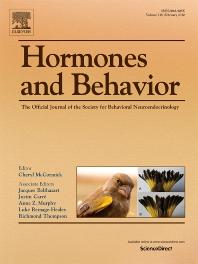
Neuromedin U (NMU) is a highly conserved neuropeptide that has been implicated in the stress response. To better understand how it influences various aspects of the stress response, we studied the effects of intracerebroventricular NMU-8 administration on stress-related behavior and activity of the hypothalamus-pituitary-adrenal (HPA) axis in male C57BL/6J mice. We investigated these NMU-8 effects when mice remained in their home cage and when they were challenged by exposure to forced swim stress. NMU-8 administration resulted in increased grooming behavior in mice that remained in their home cage and in a significant increase in c-Fos immunoreactivity in the paraventricular hypothalamus (PVH) and arcuate nucleus (ARC). Surprisingly, NMU-8 administration significantly decreased plasma corticosterone concentrations. Furthermore, NMU-8 administration increased immobility in the forced swim test in both naïve mice and mice that were previously exposed to swim stress. The effect of NMU-8 on c-Fos immunoreactivity in the PVH was dependent on previous exposure to swim stress given that we observed no significant changes in mice exposed for the first time to swim stress. In contrast, in the ARC we observed a significant increase in c-Fos immunoreactivity regardless of previous stress exposure. Interestingly, NMU-8 administration also significantly decreased plasma corticosterone concentrations in mice that were exposed to single forced swim stress, while this effect was no longer observed when mice were exposed to forced swim stress for a second time. Taken together, our data indicate that NMU-8 regulates stress responsiveness and suggests that its effects depend on previous stress exposure.
